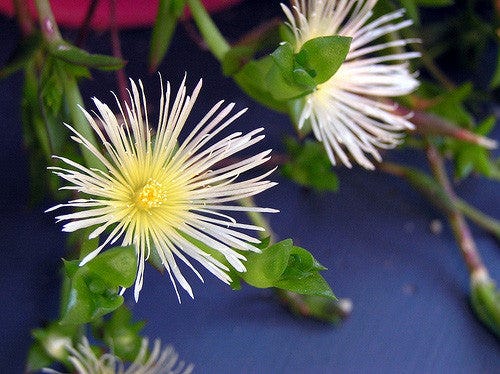Nov 19 2024 60 mins
Show notes and references:
* Please note: This was recorded prior to the election on Nov 5. We will discuss the results and predictions for the future of healthcare policy in America in our next edition.”
Kanna references:
Bennett, A. C., et al. "Sceletium tortuosum may delay chronic disease progression via alkaloid-dependent antioxidant or anti-inflammatory action." Journal of physiology and biochemistry 74.4 (2018): 539-547.
Chiu, Simon, et al. "Proof-of-concept randomized controlled study of cognition effects of the proprietary extract Sceletium tortuosum (Zembrin) targeting phosphodiesterase-4 in cognitively healthy subjects: implications for Alzheimer’s dementia." Evidence-Based Complementary and Alternative Medicine 2014 (2014).
Chiu, S., et al. "Exploring Standardized Zembrin® Extracts from the South African plant Sceletium tortuosum in Dual Targeting Phosphodiesterase-4 (PDE-4) and Serotonin Reuptake Inhibition as potential treatment in Schizophrenia." Int J Complement Alt Med 6.5 (2017): 00203.
Coetzee, Dirk D., Víctor López, and Carine Smith. "High-mesembrine Sceletium extract (Trimesemine™) is a monoamine releasing agent, rather than only a selective serotonin reuptake inhibitor." Journal of Ethnopharmacology 177 (2016): 111-116.
Gericke, N., and Alvaro M. Viljoen. "Sceletium—a review update." Journal of Ethnopharmacology 119.3 (2008): 653-663.
Gericke, Johané. Evaluating the antidepressant-like properties of Sceletium tortuosum, alone and as adjunctive treatment. Diss. North-West University (South-Africa), 2020.
Louw, Letitia. Investigation into potential endocrine disruptive effects of Sceletium tortuosum. Diss. Stellenbosch: Stellenbosch University, 2018.
Reay, Jonathon, et al. "Sceletium tortuosum (Zembrin®) ameliorates experimentally induced anxiety in healthy volunteers." Human Psychopharmacology: Clinical and Experimental 35.6 (2020): 1-7.
Reay J., Wetherell M.A., Morton E., Lillis J., Badmaev V. Sceletium tortuosum (Zembrin®) ameliorates experimentally induced anxiety in healthy volunteers. Hum. Psychopharmacol. Clin. Exp. 2020;35:1–7. doi: 10.1002/hup.2753. [PubMed] [CrossRef] [Google Scholar] https://pubmed.ncbi.nlm.nih.gov/32761980/
Schell R. Bachelor’s Thesis. Scripps Colleges; Claremont, CA, USA: 2014. Sceletium tortuosum and Mesembrine: A Potential Alternative Treatment for Depression. [Google Scholar] [Ref list]
Terburg, David, et al. "Acute effects of Sceletium tortuosum (Zembrin), a dual 5-HT reuptake and PDE4 inhibitor, in the human amygdala and its connection to the hypothalamus." Neuropsychopharmacology 38.13 (2013): 2708-2716.
Van der Walt, S. Development and evaluation of a medicated chewing gum containing Sceletium tortuosum. Diss. North-West University, 2018.
Villarreal M.L., Sharma A., Cardoso-Taketa A., Garcia G. A systematic updated review of scientifically tested selected plants used for anxiety disorders. Bot. Targets. 2012;2:21–39. doi: 10.2147/BTAT.S20593. [CrossRef] [Google Scholar]https://www.tandfonline.com/doi/abs/10.2147/BTAT.S20593
For more detailed information on kanna's safety and how to avoid withdrawals: All You Need to Know About Kanna's Safety, Risks, and Withdrawals
Psychedelics Today interview with Rick Doblin (Ph.D.), founder of MAPS, cited in the podcast: https://psychedelicstoday.com/2024/10/15/the-fda-mdma-and-public-perception-was-the-fda-fair-to-lykos/ October 15 2024.
Get full access to Neural Pharm at neuralpharm.substack.com/subscribe
